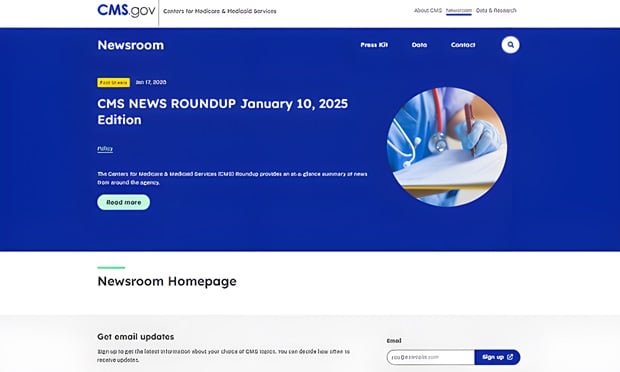 “Nobody is going away, and even if it means using our power to compel the drug company CEOs to show up, they will come before this committee,” Sen. Ron Wyden of Oregon says of investigations into high drug prices. (Photo: Shutterstock)
“Nobody is going away, and even if it means using our power to compel the drug company CEOs to show up, they will come before this committee,” Sen. Ron Wyden of Oregon says of investigations into high drug prices. (Photo: Shutterstock)Senators railed against pharmaceutical executives Tuesday for declining to testify before Congress about out-of-control drug prices, as lawmakers on both sides of the U.S. Capitol kicked off investigations sure to rattle one of the nation's most powerful industries.
Sen. Chuck Grassley of Iowa, the Republican chairman of the Senate Committee on Finance, signaled he could compel drugmakers to appear before the committee, saying he was “extremely disappointed” that only two companies have agreed to testify at a later date.
“We will extend the opportunity again in the future, but we will be more insistent the next time,” Grassley said.
Related: A chance to put an end to high drug prices?
And in a blow to the pharmaceutical industry, Sen. Ron Wyden of Oregon, the committee's top Democrat, agreed with Grassley, suggesting the parties are largely united in their determination to address skyrocketing drug costs.
“Nobody is going away, and even if it means using our power to compel the drug company CEOs to show up, they will come before this committee,” Wyden said.
While Congress has examined rising drug costs before, the issue has benefited from the attention of President Donald Trump, who has vowed to address the problem. The Trump administration has floated a handful of possible solutions, including a proposal to tie the price Medicare pays for some drugs to the prices paid for the same drugs overseas.
Across the Capitol on Tuesday, the House Committee on Oversight and Reform also held the first hearing in its own “sweeping” investigation into drug prices. Rep. Elijah Cummings, the Maryland Democrat who took control of the committee this month, recently wrote to 12 drug companies demanding information about their pricing practices.
Cummings has made it clear that he is interested in working with the Trump administration on drug prices. Cummings met with Trump in 2017, weeks after Trump was sworn in as president, to discuss how the parties could work together. Two weeks ago, Cummings discussed the issue with Health and Human Services Secretary Alex Azar.
Tuesday, one Republican lawmaker close to Trump, Rep. Mark Meadows of North Carolina, said he had spoken with Trump and agreed to pass along a message to Cummings: “On this particular subject, not only is he serious, but he's serious about working in a bipartisan way to lower prescription prices,” Meadows said.
Cummings asked Meadows to tell Trump “we are willing, ready and able to work with him to get it done.”
Lawmakers heard heart-wrenching testimony Tuesday from two mothers about the impact of rising costs on their insulin-dependent children. Antroinette Worsham described how her daughter, a college student with Type 1 diabetes, began rationing her insulin because she couldn't afford it — and how her son later found her dead in her bed.
Now, Worsham told the House committee, she worries about her younger daughter, who also has diabetes. “I fear the same is going to happen to her,” Worsham said.
On the Senate side, Kathy Sego — whose son with Type 1 diabetes was profiled by Kaiser Health News in 2017 — had a message for absent drug companies. “I don't know how any person would be OK with knowing that their medication is priced so high you have to make a decision between life or death,” she said. “That should never be a decision a person needs to make.”
It remains to be seen how drugmakers might react to mounting political scrutiny.
Both Grassley and Cummings have the power to subpoena witnesses — such as drug company executives — to appear before Congress, though Grassley told reporters afterward that he was not yet prepared to invoke that option.
Grassley said several drug companies had declined to testify publicly, offering a variety of excuses. One company, for instance, argued their testimony would “create a language-barrier problem.” Unmoved, Grassley remarked that he “thought we all spoke English.”
Wyden expressed his frustration with drug companies by comparing them to a more traditional villain, the tobacco companies.
“Even the Big Tobacco CEOs were willing to come to Congress and testify, and they made a product that kills people,” he said. “They all lied to me, but at least they showed up. The drugmakers won't even do that much.”
While lawmakers noted that both hearings were only the first of many, an early consensus emerged that something must be done about drug rebates, which provide discounts to middlemen in the supply chain but often push patients toward pricier brand-name drugs.
Senators also targeted drug discount coupons, which lower the price for patients at the cash register but don't address the larger struggle between manufacturers and insurance companies.
“We know who's winning. It's the people who print the coupons,” said Peter Bach, director of the Center for Health Policy and Outcomes at the Memorial Sloan Kettering Cancer Center. “Patients are entirely caught in the middle.”
The long political reach of the drug industry was on display Tuesday, though, suggesting it could be an uphill battle to hold pharmaceutical companies accountable. Drugmakers' political action committees give millions of dollars to the campaigns of hundreds of members of Congress.
The Project on Government Oversight, a nonpartisan watchdog group, noted even some of the experts who testified Tuesday have benefited from drugmaker cash. The Pharmaceutical Research and Manufacturers of America, which lobbies on behalf of drugmakers, has given millions to the advocacy arm of the American Action Network — a conservative-leaning organization whose president, Douglas Holtz-Eakin, testified before senators.
Bach has also received money from pharmaceutical companies directly, the watchdog group said. Bach said he was paid for giving speeches.
Another potential obstacle: House Republicans on Tuesday showed little interest in cooperating with the investigation, with some arguing that there were bigger fish to fry in the nation's health care system.
Rep. Jim Jordan of Ohio, the House committee's top Republican, opened by enumerating several failings of the Affordable Care Act, noting Democrats are “eager to blame the private sector.”
“The problem is not that the free market has failed us,” Jordan said. “It's that government interventions in the market have distorted incentives, creating barriers to competition and left things in a mess.”
Kaiser Health News (KHN) is a national health policy news service. It is an editorially independent program of the Henry J. Kaiser Family Foundation which is not affiliated with Kaiser Permanente.
Read more:
Complete your profile to continue reading and get FREE access to BenefitsPRO, part of your ALM digital membership.
Your access to unlimited BenefitsPRO content isn’t changing.
Once you are an ALM digital member, you’ll receive:
- Breaking benefits news and analysis, on-site and via our newsletters and custom alerts
- Educational webcasts, white papers, and ebooks from industry thought leaders
- Critical converage of the property casualty insurance and financial advisory markets on our other ALM sites, PropertyCasualty360 and ThinkAdvisor
Already have an account? Sign In Now
© 2025 ALM Global, LLC, All Rights Reserved. Request academic re-use from www.copyright.com. All other uses, submit a request to asset-and-logo-licensing@alm.com. For more information visit Asset & Logo Licensing.








